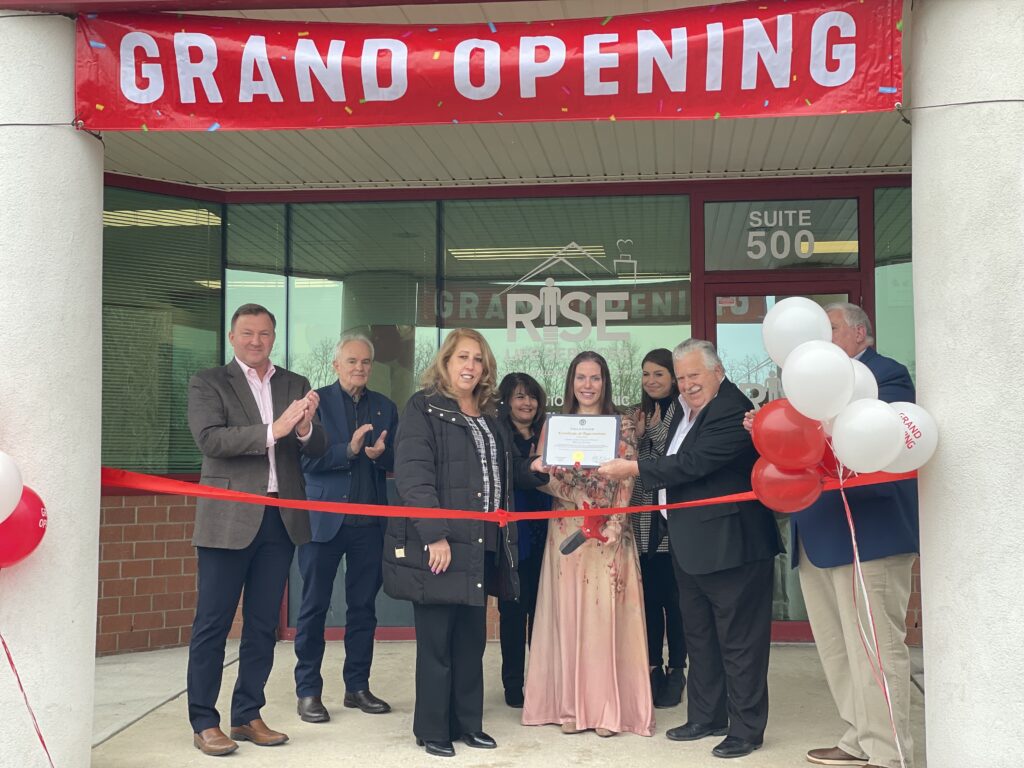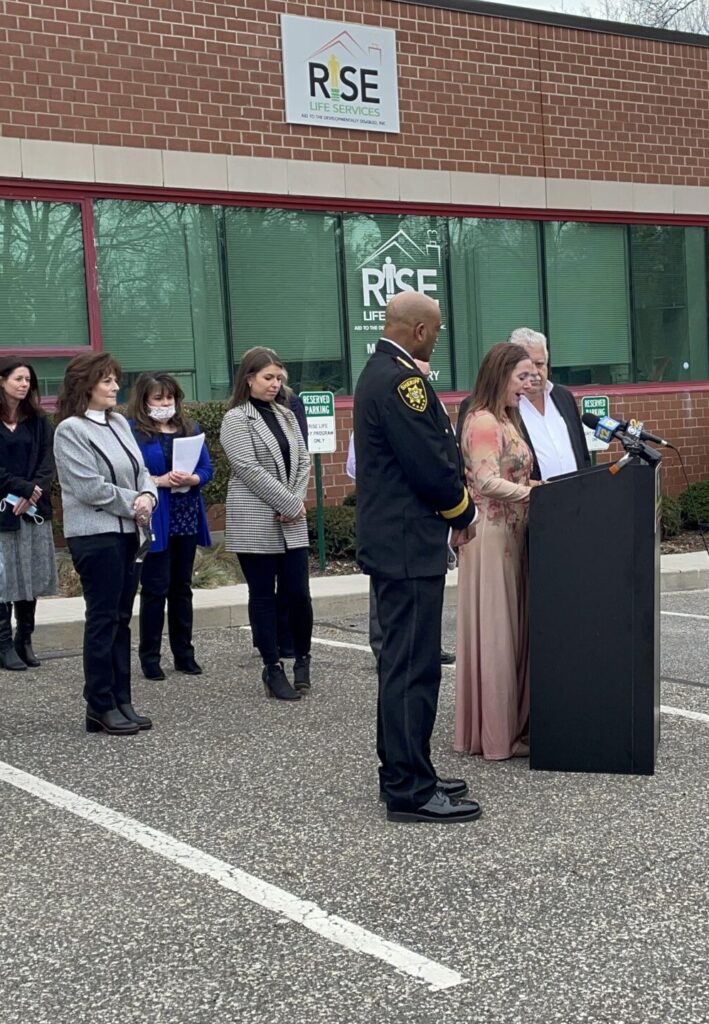Elevations Clinic
Offering a variety of services to support your mental health needs.
The Elevations Clinic Treatment Program offers therapeutic services with qualified health professionals in a safe, supportive and confidential environment.
Adults Adolescents Children
Therapeutic Services
- Screening & Assessment
- Individual, Family & Group Therapy
- Psychoeducation
- Skills Building
- Coping Skills
Medical Services
- Psychiatric Evaluation
- Psychotropic Medication Management
- Smoking Cessation
Asking for help can be difficult. We will work with you to address challenges and promote progress towards goals.
Rise Life Services Elevations Clinic
901 East Main Street, Suite 500
Riverhead, NY 11901
631-727-6220 ext 232

Clinic Staff Team
Kaitlin Fibkins
KFibkins@RiseLifeServices.org
Kathryn Clavin-Vunkannon, LCSW
Marie O’Donnell
Frequently Asked Questions:
The need for mental health services on Long Island has been steadily increasing for quite some time now which has spiked tremendously due to the pandemic. Overcoming obstacles and challenges is part of the human condition, but sometimes individuals struggle and could benefit from professional support in coping with daily stressors, mental health challenges, emotional distress, trauma or depression, or even just yearn for a more satisfying existence or better quality of life. Our team can offer assistance in facing these challenges
Individuals with complex mental health needs are experiencing notable, multiple, acute, resolute or persistent mental health challenges that impact their functioning. To best support people presenting with complex mental health needs we collaborate with them to deliver individualized support that allows for shared responsibility in the recovery process which is empowering to them and allows them to take control of their lives.
We provide treatment services including but not limited to: assessment, symptom management, education about medication or diagnoses, counseling, group therapy, family therapy, and medication management
Since mental health includes our emotional, psychological, and social well-being, it affects how we think, feel, and act. It also helps determine how we tolerate and manage stress, relate to others, and make decisions and choices. That being said, “common mental health issues” include a vast array of issues and problems both big and small
Rates of anxiety and depression are rising and many people are experiencing fear and worry regarding our current societal climate and uncertain futures due to and such as the pandemic and increased and unmanaged crime and violence. The pandemic has really shed light on the need to prioritize mental health.
These include social and economic disadvantage and deprivation, domestic abuse, low levels of education, unemployment or insecure employment, discrimination, gender identity, racism, alcohol and substance misuse/ abuse, and violence. Suicide rates have been steadily increasing for the past 20 years. We address these challenges in a real way as well as those with diagnoses that include but are not limited to: anxiety, depression, ADHD, bi-polar disorder, personality disorders, schizophrenia, schizoaffective disorder, post-traumatic stress disorder (PTSD), and childhood disorders.
Given the current social climate, everyone could probably benefit from some additional emotional support. There really is no “wrong” or “bad” time to prioritize personal growth, self-improvement and stress reduction . Many people incorrectly believe they need a diagnosable disorder to see a therapist and benefit from that support. Nothing could be further from the truth. In fact, proactively addressing challenges before they become crises is a better way to manage stressful life developments. Some examples of reasons people seek assistance include but are not limited to: experiencing interpersonal conflicts, feeling unproductive, having trouble processing something in their life, patience has diminished or decreased, a general feeling of malaise or disappointment they cannot identify the source of, overall mood changes, having difficulty navigating through a challenging time, relationships have become tumultuous or simply unsatisfying, feeling like they’re failing or not functioning as best they can or as well as they used to or are stuck, going through some type of major life transition, having an overwhelming sense of regret about life choices, have experienced a traumatic event, they are repeating negative patterns, are feeling pressured or overwhelmed, or at the most basic level they just feel they could use an unbiased person to talk to.
Finding the right therapist is crucial and also extremely important is understanding what therapy is and what it isn’t, setting goals for your work together, showing up and speaking up, being honest, and patient with yourself and with the process.
There seems to be a stigma surrounding the very act of asking for help. Requesting assistance can conjure feelings of incompetence, weakness, anxiety, stress, and uncertainty, People may also underestimate the severity of their need. For people, families and other supports, the coping process can be frustrating, confusing, and exhausting. We ask people choosing to cope on their own to consider why they would want to experience these feelings alone and that this may be related to feeling lonely and unsupported in general. Feeling lonely can also have a negative impact on your mental health, especially if these feelings have lasted a long time. Some research suggests that loneliness is associated with an increased risk of certain mental health problems, including depression, anxiety, low self-esteem, sleep problems and increased stress.
Yes, if it is determined that this is the best and most appropriate option for an individual or family, this can be a very good alternative to traditional approaches to treatment.
Therapeutic Modalities that people should be aware of include but are not limited to : Acceptance & Commitment Therapy (ACT),Attachment Based Behavioral Therapy (BT),Child-Centered Play Therapy Client/Person-Centered Therapy, Cognitive Behavioral Therapy (CBT), and Dialectical Behavioral Therapy (DBT). GeneSight Testing can help inform how prescribers treat individuals. We have a psychiatrist who can prescribe all psychotropic medications and administer injectables and determine together with individuals what the best course of treatment is for them.


